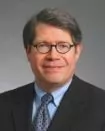Case probably opens a Supreme Court debate about how the Establishment Clause and the Free Speech Clause interface.
By a 2–1 vote, a panel of the U.S. Court of Appeals for the Second Circuit—in The Bronx Household of Faith v. Board of Education of the City of New York1—vacated a permanent injunction issued by a U.S. district court that had enjoined the enforcement of a policy prohibiting the use of the New York City Board of Education's school facilities after hours for "religious worship services." The Second Circuit's holding in favor of the Board of Education ended, at least for the moment, a decade-long battle over whether New York's public schools could be used for Sunday religious services.
The majority opinion, authored by Judge Leval, was based on: (i) the conclusion that the New York City Board of Education Rule did not constitute viewpoint discrimination because it did not seek to exclude expressions of religious points of view or of religious devotion, and (ii) the conclusion that the Board of Education reasonably sought to avoid a violation of the Establishment Clause of the U.S. Constitution.
Judge Calabresi's concurring opinion emphasized that the school in question was being used as a house of worship, thus suggesting a violation of the Establishment Clause. (This is close to the view that Duane Morris attorneys previously expressed in an amicus brief filed in the Second Circuit on behalf of the Association of the Bar of the City of New York.)
Judge Walker wrote a vigorous dissent, relying on his interpretation of the U.S. Supreme Court's 2001 opinion in Good News Club,2 which permitted the after-hours use of school buildings for religious activities by the school's students. While the majority found religious worship to be distinguishable, it is highly likely that religious organizations using school properties for religious worship will seek to revisit the issue in the Supreme Court since the case involves the interface between the Free Speech Clause and the Establishment Clause.
If you have any questions about the information addressed in this Alert, please contact Anthony J. Costantini, Robert L. Byer, any >member of Duane Morris' Trial Practice Group or the attorney in the firm with whom you are regularly in contact.
Footnotes
1Bronx Household of Faith v. Bd. of Educ. of N.Y., 2011 U.S. App. LEXIS 11107 (2d Cir. N.Y. June 2, 2011).
2Good News Club v. Milford Central School, 533 U.S. 98 (2001).
This article is for general information and does not include full legal analysis of the matters presented. It should not be construed or relied upon as legal advice or legal opinion on any specific facts or circumstances. The description of the results of any specific case or transaction contained herein does not mean or suggest that similar results can or could be obtained in any other matter. Each legal matter should be considered to be unique and subject to varying results. The invitation to contact the authors or attorneys in our firm is not a solicitation to provide professional services and should not be construed as a statement as to any availability to perform legal services in any jurisdiction in which such attorney is not permitted to practice.
Duane Morris LLP, a full-service law firm with more than 700 attorneys in 24 offices in the United States and internationally, offers innovative solutions to the legal and business challenges presented by today's evolving global markets. Duane Morris LLP, a full-service law firm with more than 700 attorneys in 24 offices in the United States and internationally, offers innovative solutions to the legal and business challenges presented by today's evolving global markets. The Duane Morris Institute provides training workshops for HR professionals, in-house counsel, benefits administrators and senior managers.

